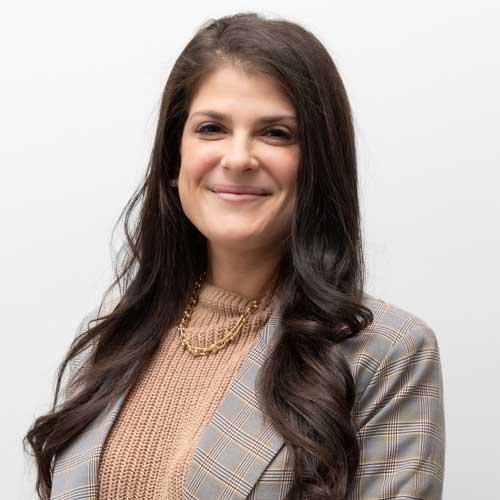When it comes to overcoming addiction, there’s no such thing as a one-size-fits-all solution. That’s why addiction recovery in Greenwich emphasizes personalized treatment—an approach that’s at the heart of Connecticut Recovery’s philosophy. From your first assessment to ongoing aftercare, every aspect of treatment is tailored to your unique history, needs, and goals.
Why Personalization Matters in Recovery
Each individual comes to treatment with a different background, substance use history, and set of emotional and mental health needs. Some may struggle with trauma, others with anxiety or depression, while many are managing multiple challenges at once. Personalized care ensures your treatment plan isn’t just comprehensive—it’s relevant to you.
At Connecticut Recovery, personalization isn’t just a buzzword. It’s an integral part of their evidence-based, client-centered care model that fosters trust, dignity, and long-term success.
Common variables that influence a custom recovery plan:
- Type and severity of substance use
- Co-occurring mental health conditions
- Trauma history
- Lifestyle and schedule
- Physical health
- Support systems
A Thorough Evaluation Sets the Foundation
The personalized approach begins with a comprehensive intake assessment. This isn’t just paperwork—it’s a deep dive into your medical history, substance use patterns, mental health, and life circumstances. It allows clinicians at Connecticut Recovery to design a recovery roadmap that addresses your full picture.
From here, your individualized treatment plan will be created and continuously refined throughout your recovery journey. Adjustments are made as you progress, face new challenges, or gain new insights.
Customized Modalities That Meet You Where You Are
Addiction recovery in Greenwich often includes a blend of clinical and holistic therapies. At Connecticut Recovery, these treatment methods are carefully selected to meet your needs:
- Cognitive Behavioral Therapy (CBT): Helps identify and reframe negative thinking patterns
- Dialectical Behavior Therapy (DBT): Teaches emotional regulation and distress tolerance
- Eye Movement Desensitization and Reprocessing (EMDR): Effective for trauma-related symptoms
- Mindfulness & Meditation: Cultivates emotional awareness and calm
- Art and Expressive Therapies: Encourages healing through creative outlets
You’ll engage in both individual and group therapy, but the structure, pacing, and focus are personalized. This means no two clients at Connecticut Recovery have the same exact experience, and that’s by design.
Holistic Support for Whole-Person Healing
The team at Connecticut Recovery understands that healing doesn’t happen in a vacuum. Addiction affects the mind, body, and spirit, so treatment must address all three.
In addition to evidence-based therapy, your treatment plan may include:
- Nutrition and wellness counseling
- Yoga and movement therapy
- Spiritual or values-based support
- Stress management techniques
- Sleep hygiene education
These offerings aren’t added as afterthoughts—they’re incorporated into your plan with intention, based on what will serve your recovery best.
Flexible Program Options That Fit Your Life
Not everyone can step away from their responsibilities for months at a time. That’s why Connecticut Recovery offers a range of flexible care levels:
- Day Treatment (Partial Hospitalization): Structured therapy during the day while returning home at night
- Intensive Outpatient Programs (IOP): A part-time commitment that balances treatment with work or family responsibilities
- Long-Term Recovery Planning: Ongoing support, relapse prevention, and wellness planning
Whether you’re a parent, student, professional, or caregiver, your treatment plan will be built around your real-world needs.
Integrated Mental Health and Addiction Treatment
Co-occurring disorders—when someone struggles with both a mental health issue and substance use—are incredibly common. In fact, studies from the National Institute on Drug Abuse (NIDA) show that nearly 50% of individuals with substance use disorders also experience mental illness.¹
That’s why Connecticut Recovery prioritizes dual diagnosis treatment. This means treating addiction and mental health conditions together, using integrated care that includes:
- Psychiatric evaluations
- Medication management (when appropriate)
- Trauma-informed care
- Ongoing mental health therapy
Addressing both sides of the issue is essential for sustained recovery, and it’s a cornerstone of their personalized approach.
Ongoing Evaluation and Aftercare Support
A recovery plan isn’t static. As you grow and heal, your needs evolve—and your treatment should evolve too. Connecticut Recovery provides regular evaluations to adjust your care plan based on your progress and goals.
Upon completing your main treatment phase, you won’t be left on your own. Aftercare and relapse prevention planning are essential parts of your individualized journey. Alumni support, outpatient therapy, and ongoing coaching may all be part of your aftercare blueprint.
Why Connecticut Recovery Is Different
At Connecticut Recovery, personalized addiction recovery in Greenwich isn’t just a clinical practice—it’s a mission. Clients are never treated as just a diagnosis. The team’s compassionate, credentialed clinicians work with you every step of the way, empowering you to rebuild your life with dignity and direction.
What Sets Connecticut Recovery Apart:
- Fully customized treatment plans
- Flexible care levels to fit your lifestyle
- Evidence-based therapy blended with holistic support
- Dual diagnosis expertise
- A peaceful, private facility in Greenwich, CT
Take the First Step Toward Personalized Recovery
If you’re ready to explore a customized, compassionate approach to addiction treatment, Connecticut Recovery is here for you. Your story, your needs, and your goals matter—and your care should reflect that.
Visit our Contact Page to connect with our admissions team and start building a recovery plan that works for you.
Sources
[1] https://nida.nih.gov/sites/default/files/1155-common-comorbidities-with-substance-use-disorders.pdf
[2] https://nccih.nih.gov/health/integrative-health

Alexis earned both a B.S. in Psychology and a B.S. in Family and Child Sciences from Florida State University and an M.A. in Marriage and Family Therapy from the University of San Diego. She holds licenses in Marriage and Family Therapy in Florida, Connecticut, and Massachusetts and is also a member of the American Association for Marriage and Family Therapy (AAMFT).
Alexis works with families, couples, children, and groups and also has a sub-specialty in addiction and recovery. She utilizes an integrated, systemic approach to counseling; empowering people to define what is not working for them in their lives and to discover the possibilities for making life work. In doing this, clients are guided towards identifying their strengths, accessing their resources, tapping into their potential for success, and taking action toward achieving their desired goals.
Alexis also has extensive experience in the administration of behavioral health organizations. She has developed, built, and supervised several facilities encompassing all levels of care while leading them through state licensing and The Joint Commission accreditation process.

